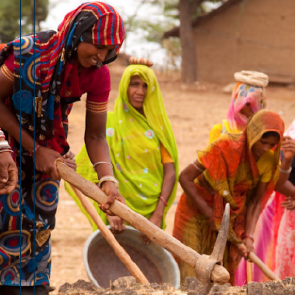Making a Gender Responsive Urban Employment Guarantee Scheme
December, 2020
The pandemic and subsequent lockdown measures in India have taken a toll on all aspects of life, particularly on livelihoods. While job losses have been observed in both rural and urban sectors, recent figures show that there has been an increase in creation of non-salaried jobs in rural areas, but generation of wage employment in the urban sector has remained a challenge. Over 21 million salaried jobs have been lost in India (out of a base of 86 million overall salaried jobs) between April and August 2020. This evidence points to the fact that urban livelihoods have taken a huge hit due to the COVID-19 crisis, and the ability of the urban sector to create new jobs to compensate for these losses is currently under a cloud. Women have been disproportionately affected by job losses. A recent report tracking the pandemic’s influence on informal work in India suggests that more women were out of work post-lockdown compared to men. Given the largely positive effects of MGNREGA on women workers, many policy experts have recommended designing and implementing an urban employment guarantee programme to alleviate the problems faced especially by urban women workers, particularly those in the informal economy. Recognising such a need for support in urban areas, various state governments have stepped in with their own urban employment guarantee schemes. The details of these schemes are provided in the brief.
Resource Type Learning note
Topics Gender, COVID-19, UEGS, urban employment guarantee schemes
Authors Aparajita Bharti, Deepro Guha

















































